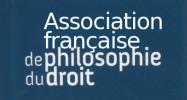Paper's abstract
Hervé
Chneiweiss,
Call for an international group of genome experts, IGGE, equivalent to the IPCC
Science in general, and life sciences in particular, have such an impact on our daily lives that scientists have a duty to anticipate. Probably because of its special function as the support of hereditary information, DNA, its characterization, its decryption, its modifications, have been the object of a particular attention during the last fifty years. It is true again since the discovery of techniques of targeted modifications of the genome followed by their recent adaptation to mammalian cells. Scientific discoveries are made every day, they seldom make the head lines even if thrill seeking media regularly announce a new revolution. But a real breakthrough is exceptional because discoveries leading to a shift in paradigm are exceptional. It is because an academic discovery rarely gives rise to a technological application and, even if it is anticipated, the transfer is long, difficult and not often successful. It is therefore necessary today to emphasize that we are witnessing one of these technological revolutions with the new mastery of targeted modifications of the genome thanks to the system CRISPR-Cas9 and its derivatives. Scientific, medical, economic and environmental issues are huge. It is necessary to assess as soon as possible the legal, ethical and societal framework likely to benefit from these techniques without their risks and potential harms. Such a goal can only be achieved by an international framework associating a multidisciplinary scientific expertise with governance. Therefore we are calling for the creation of an International Group of Experts of the Genome. To this end, a European consensus position has been elaborated and discussed at several recent international symposia.
Key Words : genome biodiversity
t. 59, 2017: p. 17-30
